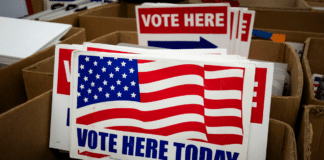The Department of Motor Vehicles (DMV) in California has begun testing a controversial new initiative involving digital driver’s licenses.
The program, which is currently in its experimental phase, involves a mobile application that allows drivers to upload their licenses and IDs, Reclaim the Net reports.
Approximately 2,000 drivers are participating in this pilot program, with the expectation to “actively use it and provide feedback.”
The DMV has indicated that the program will soon be expanded to include more drivers, with a broader public rollout expected in the coming weeks.
The digital license is housed within the DMV Wallet smartphone app, a move that the DMV claims has no potential downsides.
A representative from the DMV has described it as an “easy, secure, and convenient companion identification to your physical card.”
However, this move towards digital identification has raised significant concerns about the security of personal data.
Critics argue that physical identification methods, while not entirely secure, are significantly safer than centralizing personal data in a digital database.
This shift towards digital identification is seen as part of a broader policy trend, including the push towards cashless transactions.
The Transportation Security Administration (TSA) is also involved in this initiative, working closely with DMVs across the country to advance the digital ID scheme.
Currently, digital driver’s licenses have been implemented in nine states, including Arizona, Colorado, Louisiana, Mississippi, Georgia, Hawaii, Ohio, Utah, and Maryland, the report notes.
The TSA has stated that its goal is to integrate “new technologies for a faster, easier travel experience” and has been working on “several innovative digital identity initiatives, which work in place of a physical ID or boarding pass.”
However, at present, digital licenses are only accepted at selected international airports, including San Francisco, Los Angeles, San Jose, and 26 other airports across the country.





